The drumbeat filled the Lummi Nation School gymnasium, sounding like storm waves crashing on rocky shores while paddle vests on dancing children made the sounds of pebbles tumbling in fast water.
The Blackhawk Singers performed for more than 600 people gathered to honor their salmon relatives and the Lummi peoples’ intrinsic connection to the fish at the First Salmon Ceremony on Thursday, May 16.
For the first time, Lummi seniors at the high school led efforts to put on the ceremony as part of a required step toward graduating, as well as the school’s continued effort to “decolonize” its curriculum.
Gallery: Lummi Nation honors first salmon
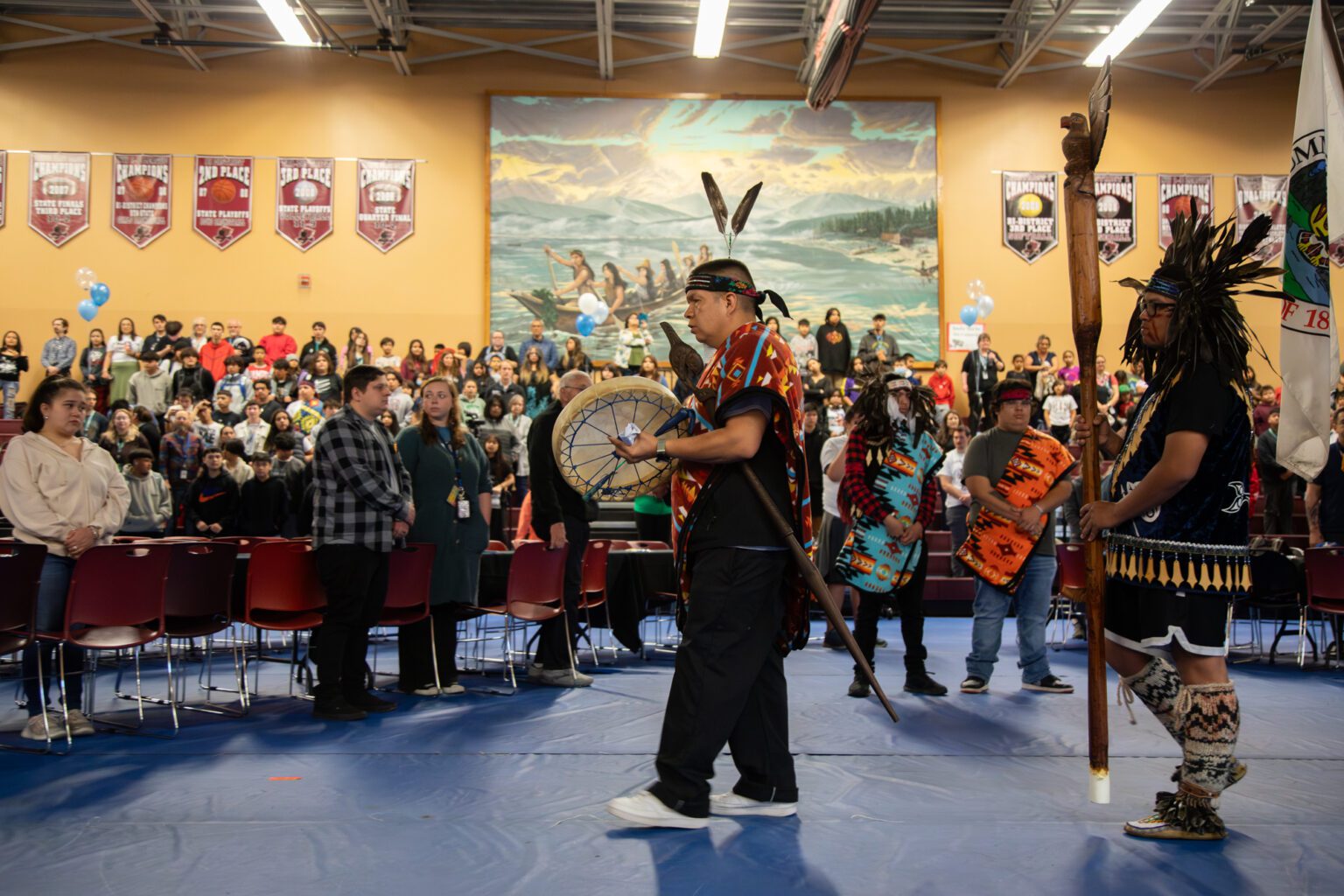


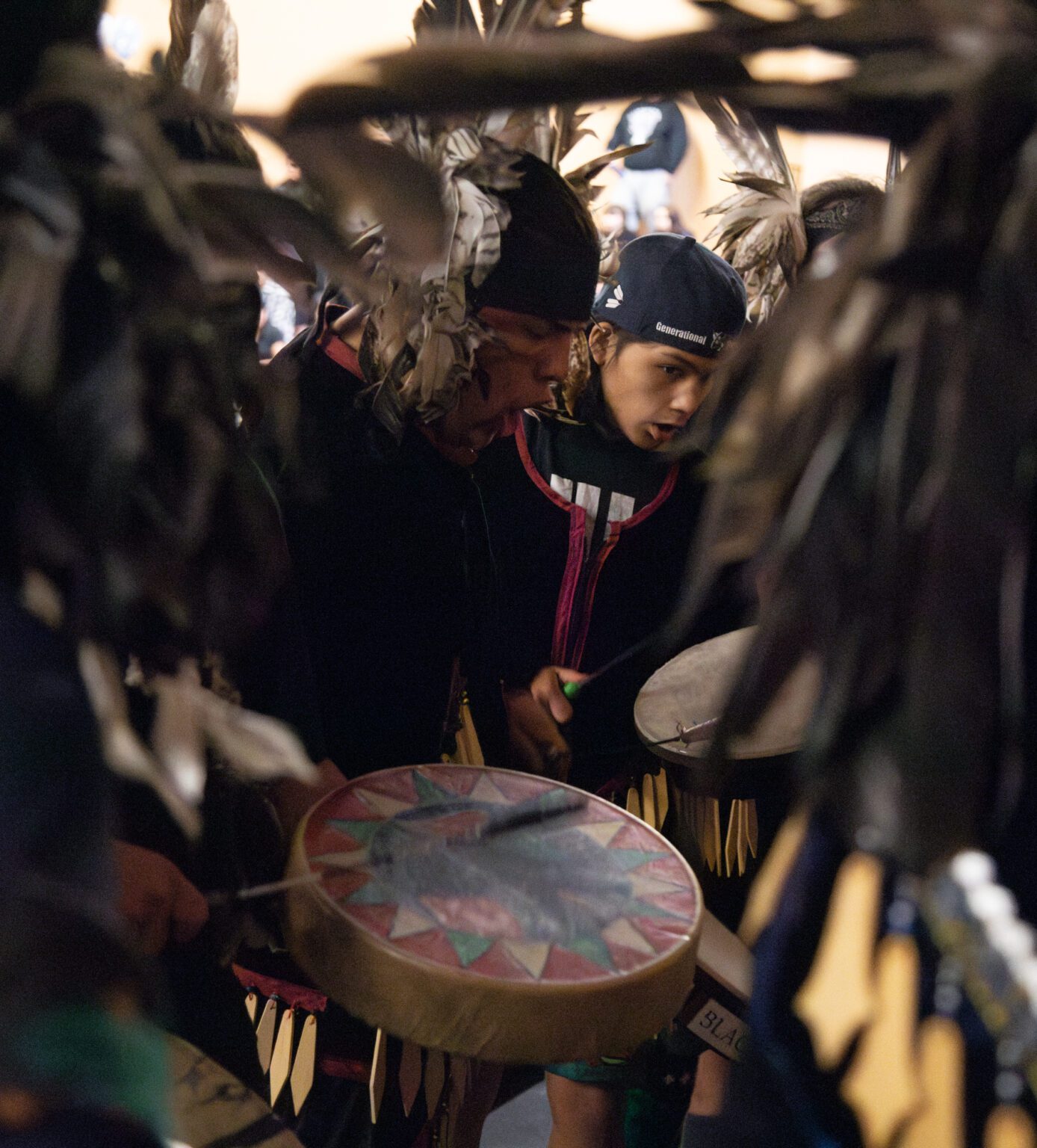


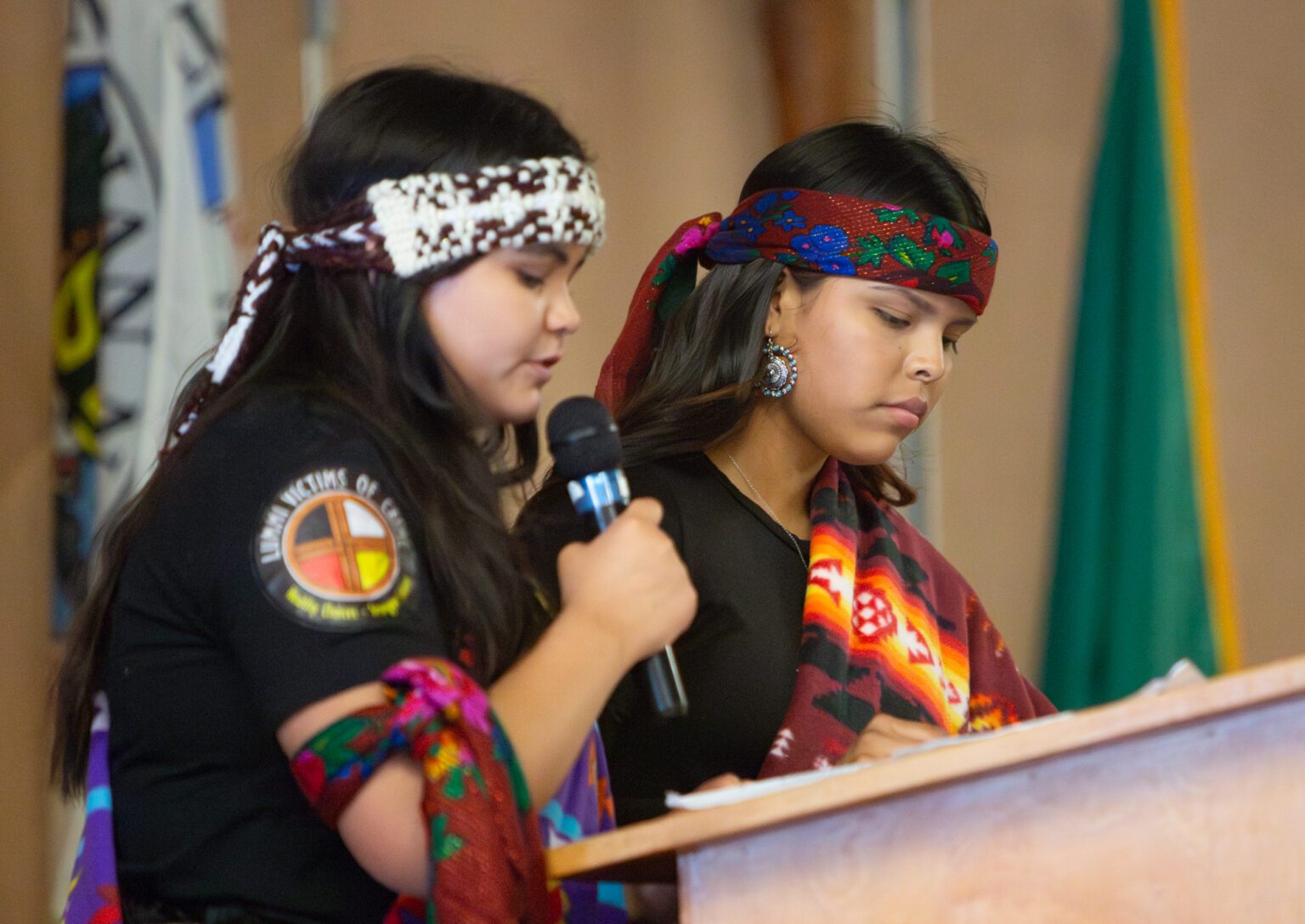
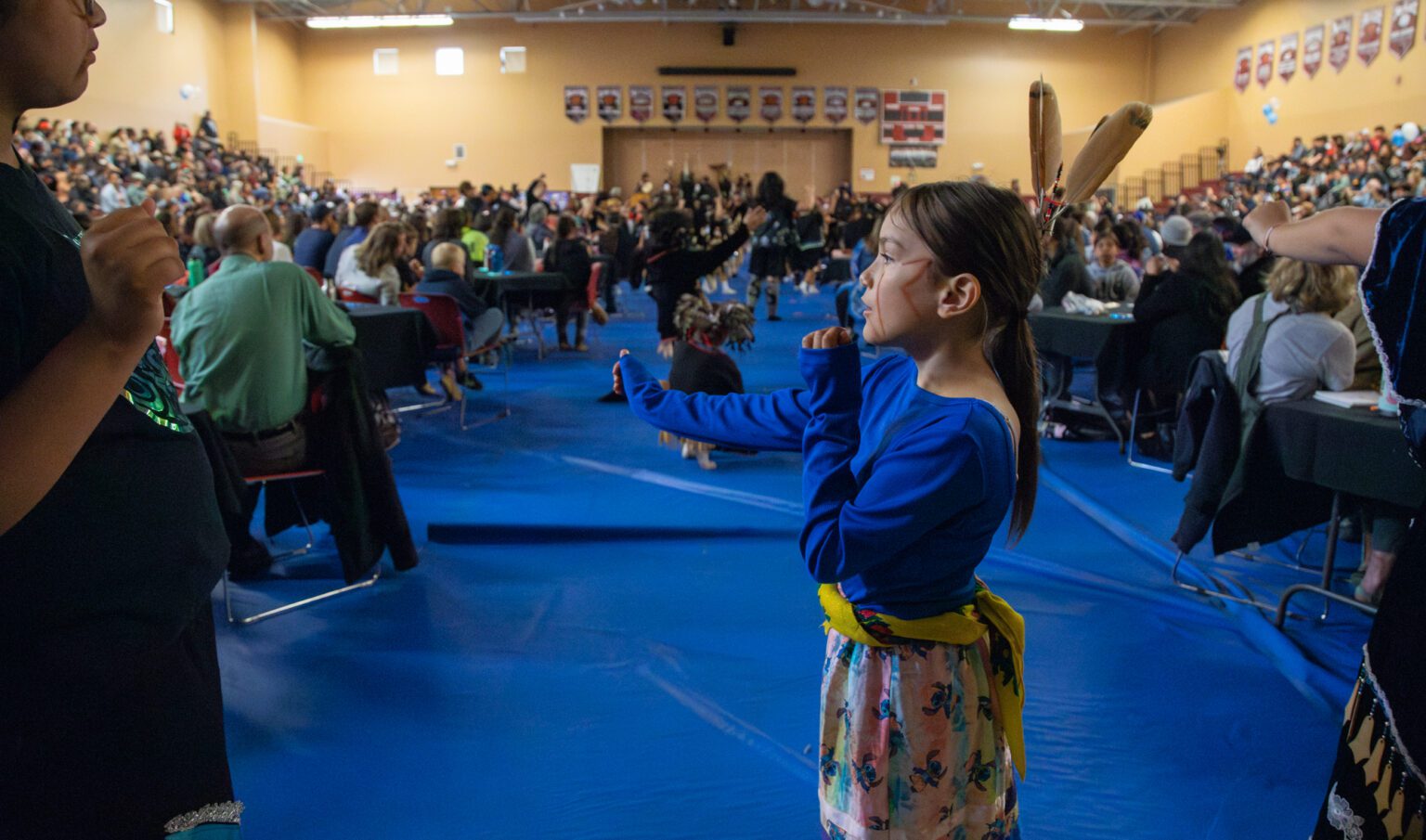
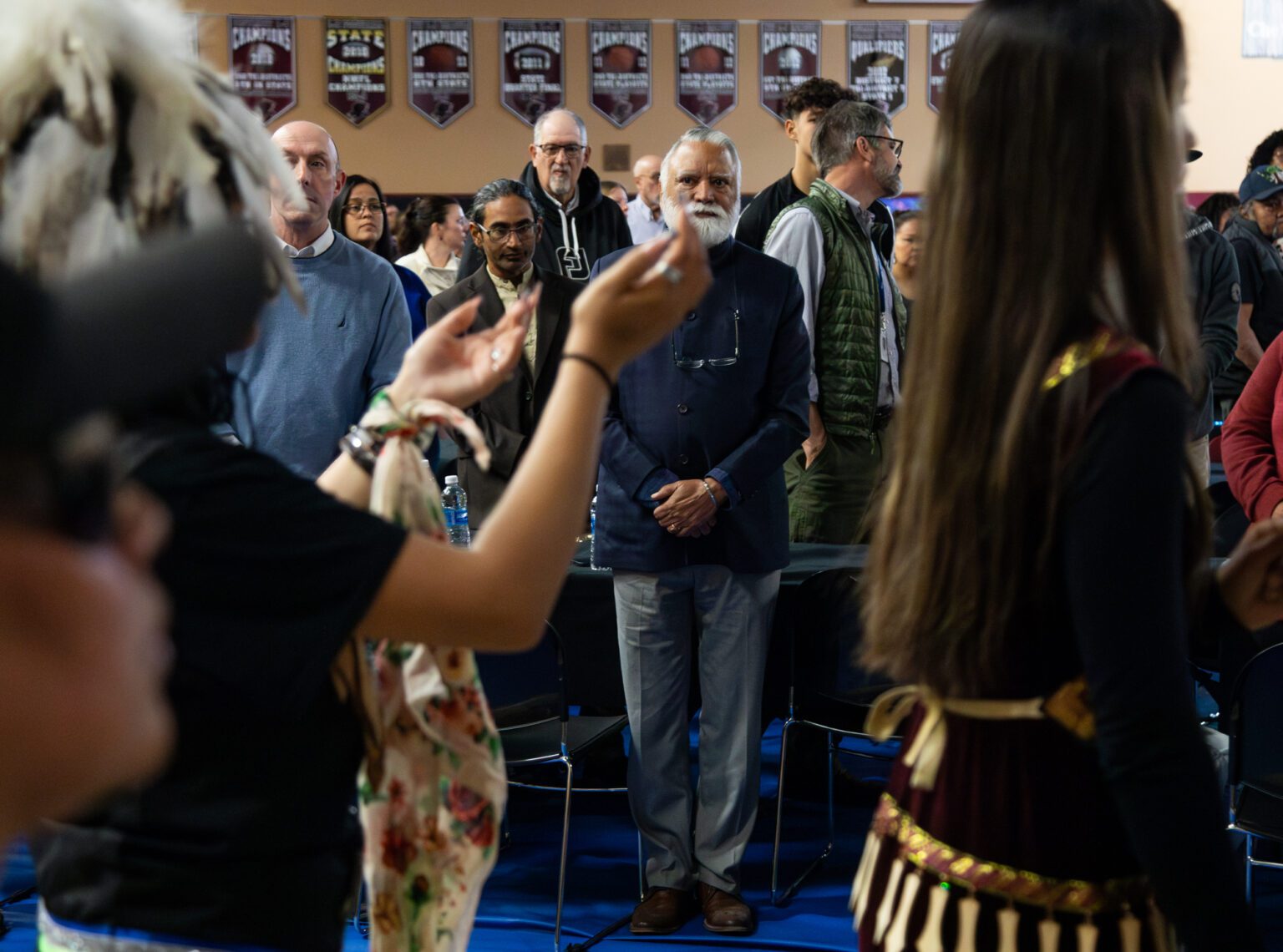
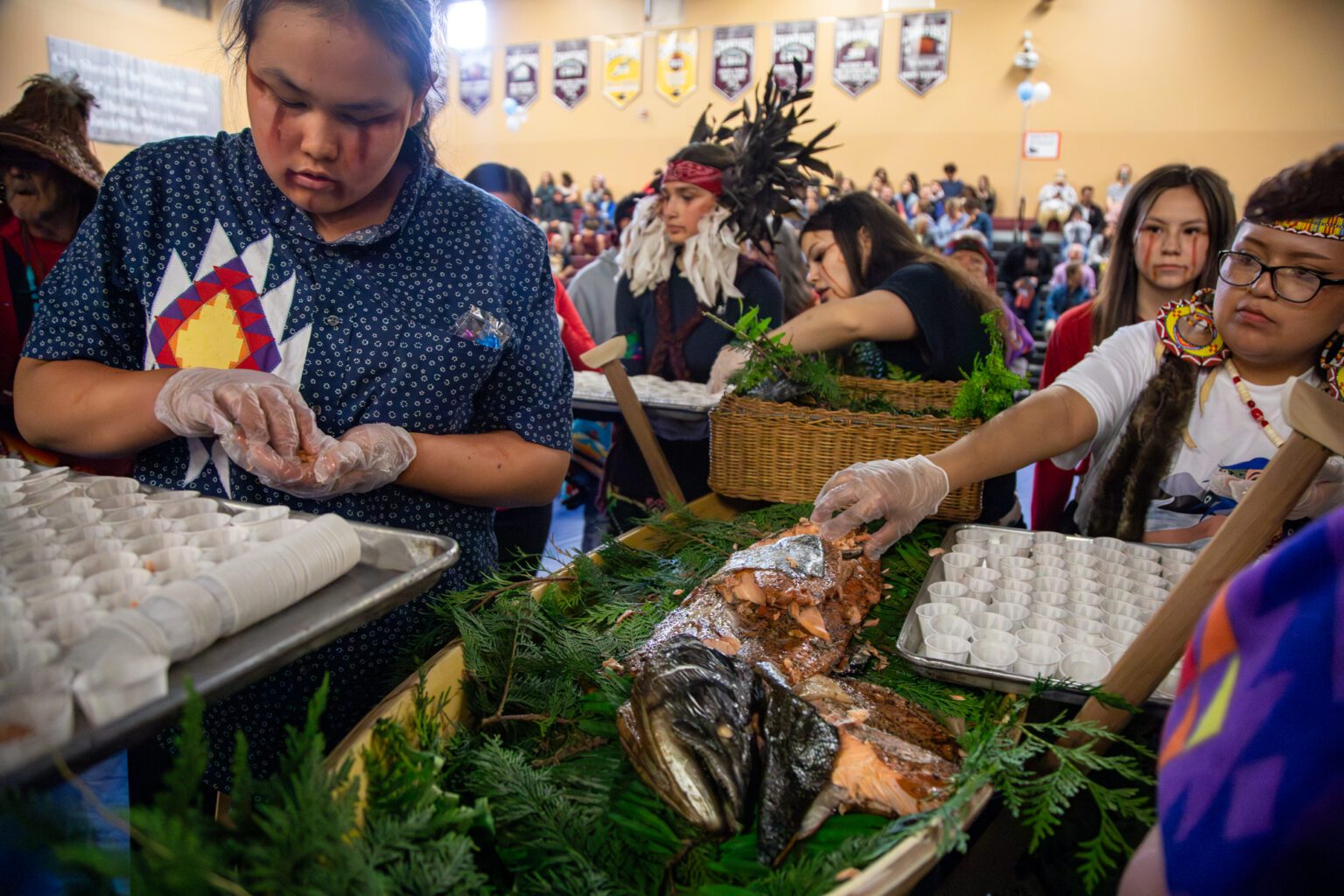

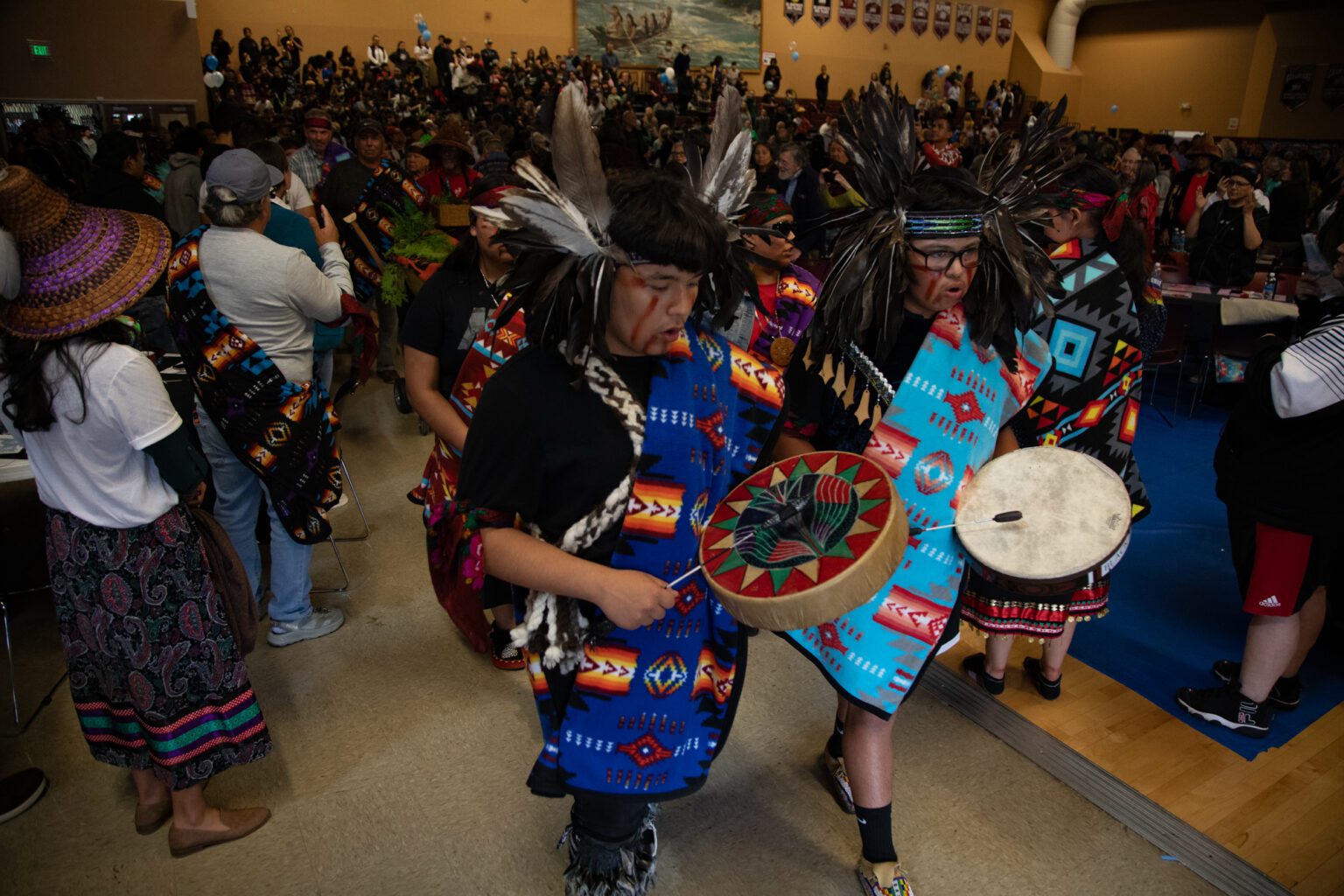
Washington students must meet various criteria to earn a high school diploma, including completing one graduation pathway option. House Bill 1308, passed last year, allows First Salmon Ceremony projects to serve as an alternative to standardized testing. At the Lummi school, this pathway is now required.
“They find a mentor, pick a project that contributes to Salmon Ceremony and they put that plan into effect,” said Samuel Tso, a culture teacher at the school who was instrumental in the process.
The students undertook various projects, including constructing a permanent fish pit for cooking, and collaborating with a financial expert to manage bulk purchases and balance the ceremony’s budget.
Students interested in developing their culinary skills were teamed up with caterers and traditional cooks so they could better incorporate Indigenous foods into their work, explained Tso, noting there is currently a boom in Indigenous culinary arts.
Lena Williams, a graduating senior, was the floor manager of the event, ensuring that the program stayed on track.
“It ran very smoothly,” Williams said. “I just had my mind straight and positive, making sure everything was alright.”
The lessons learned by working with mentors on the project can be carried into students’ future studies or careers, Tso said.
“This is a perfect way for them to see how they can recontribute back into the community,” Tso added.
The seniors, wearing white T-shirts with an artist’s rendition of Salmon Woman on the front, bustled about the event, ensuring that their contributions to the ceremony were complete.
“Our hands go up to the Lummi Nation School, especially the seniors,” Lummi Nation Chairman Tony Hillaire said during his remarks.
“We are the salmon people; it is part of our cultural identity,” Hillaire told the crowd, noting that the ceremony was one of the most important activities they can participate in.
People have a responsibility to take care of the salmon, to take care of their home, to take care of the Earth and to take care of each other, the Chairman said.

He asked that all the adults in the room, including various elected leaders in state and local government, come together to solve issues the community faces, as well as those that threaten salmon and their habitat.
“Children are always the common ground in everything they do,” he reminded the crowd. He pointed out that a few years ago there weren’t enough Blackhawk singers to go around the room, “now we don’t have enough room.”
After the chairman was done speaking and the dozens of Blackhawk singers finished their blessing song, several students took to the podium to tell traditional stories.
Ariahlynn Joe and Harlow Boome told the “Salmon Woman” story, while Olga Kapuni-Lopez and Rebecca George-Marois told the story “Bear and Steelhead.”
The cautionary tales underlined Lummi people’s connection, commitment and responsibilities to salmon. Afterward, the first salmon wrapped in a blanket and covered with cedar bows and fern leaves was rolled through the crowd in a small wooden canoe.
With care and respect, the cooked salmon was divided into small cups on large trays and brought to elders and other participants. Those who found bones were instructed to return them to the cup so they could be ceremonially returned to the water.
Isaac Stone Simonelli is CDN’s enterprise/investigations reporter; reach him at isaacsimonelli@cascadiadaily.com; 360-922-3090 ext. 127.



